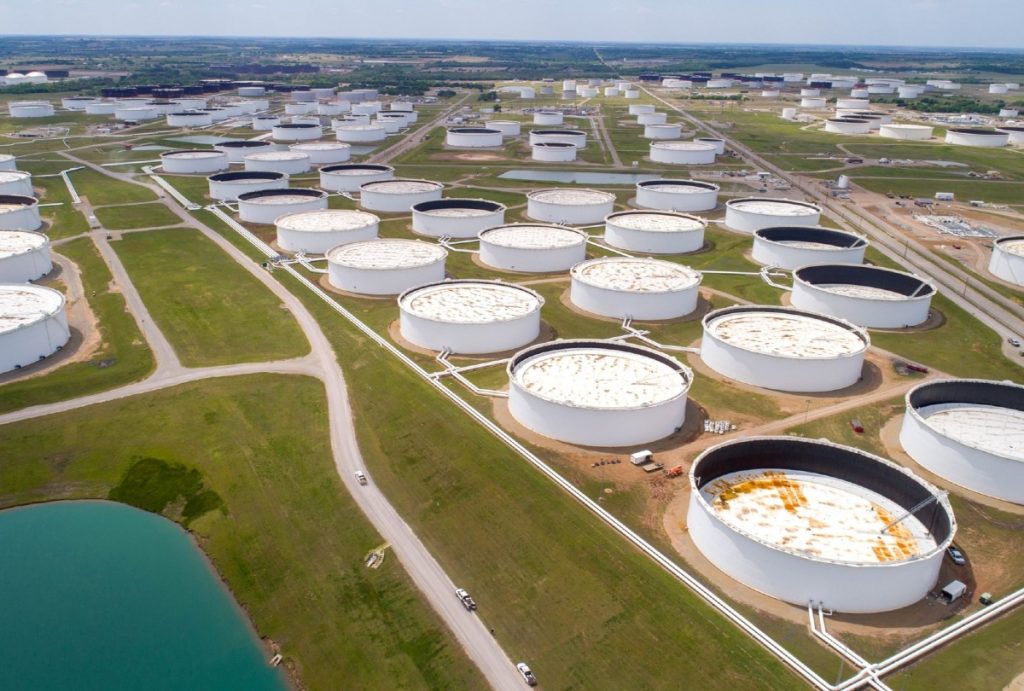
(Reuters) – U.S. crude stocks fell as refining and export demand rose, while gasoline and distillate inventories rose last week, the Energy Information Administration said on Wednesday. Crude inventories fell by 3.4 million barrels to 424.2 million barrels in the week ended November 14, the EIA said, compared with analysts’ expectations in a Reuters poll for a 603,000-barrel draw.
Crude stocks at the Cushing, Oklahoma, delivery hub dropped by 698,000 barrels in the week, the EIA said.
U.S. crude exports rose by 1.34 million barrels per day to 4.16 million bpd, and net U.S. crude imports fell last week by 614,000 barrels per day, EIA said.
Oil futures pared some losses following the larger-than-expected draw. Global Brent futures were trading at $63.42 a barrel, down $1.47 at 10:38 a.m. EDT (1538 GMT), while U.S. West Texas Intermediate futures were trading at $59.24 a barrel, down $1.49.
“A solid rebound in both refinery runs and crude exports encouraged a draw to U.S. crude inventories,” said Matt Smith, an analyst for ship-tracking firm Kpler. “Cushing inventories dropped for a second week, moving closer to historical lows once more,” he added.
REFINERY RUNS UP
Refinery crude runs rose by 259,000 bpd, the EIA said, while utilization rates increased by 0.6 percentage point in the week to 90%.
“It was a supportive report. The refinery run rate rebounded rapidly, generating the crude drawdown. The refinery run rate getting back to that level so quickly was a surprise to the market. We had been deep in refinery maintenance,” said John Kilduff, partner at Again Capital.
Total product supplied, a proxy for demand, fell by 613,000 bpd to 20.16 million bpd. Gasoline demand slipped 500,000 bpd to 8.53 million bpd, while distillate demand fell 136,000 bpd to 3.88 million bpd.
U.S. gasoline stocks rose by 2.3 million barrels in the week to 207.4 million barrels, the EIA said, compared with analysts’ expectations in a Reuters poll for a 200,000-barrel draw.
Distillate stockpiles, which include diesel and heating oil, rose by 200,000 barrels in the week to 111.1 million barrels, versus expectations for a 1.2-million-barrel drop, the EIA data showed.
Reporting by Liz Hampton in Denver; Editing by Rod Nickel
Share This:




 CDN NEWS |
CDN NEWS |  US NEWS
US NEWS 


























